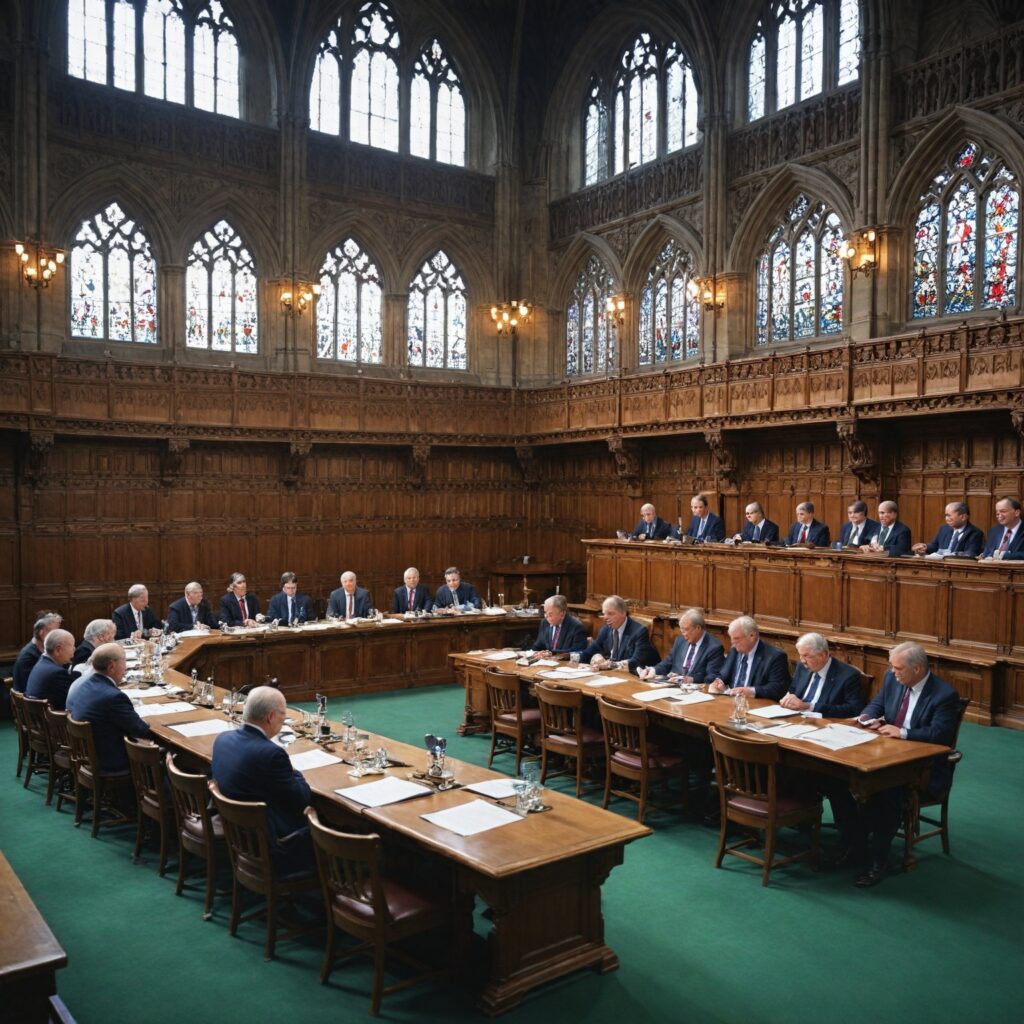
Highlights:
– The government is in discussions with Labour MPs about changes to welfare policies.
– No 10 has expressed a softer stance on the proposed bill and is open to amendments.
– Chancellor Rachel Reeves is involved in discussions with rebel Labour MPs.
Government in Talks with Labour MPs Over Welfare Policies
The British government has confirmed that it is engaging in discussions with Labour MPs regarding potential adjustments to its welfare policies. This development marks a significant shift in approach, with Downing Street expressing willingness to proceed with a scheduled vote while acknowledging the complexities of getting the policy right. The move comes in response to over 120 Labour backbenchers signing an amendment urging the abandonment of proposals aimed at reforming the welfare system.
The ongoing dialogue underscores the challenges of bringing about fundamental change within the welfare system. A No 10 source emphasized the necessity of addressing the shortcomings of the current welfare structure, which is failing the most vulnerable members of society. The aim is to collaborate with colleagues to implement necessary reforms, signaling a departure from a more rigid stance on the issue.
Exploring Welfare Policy Reform
The proposed Universal Credit and Personal Independence Payment Bill changes target eligibility criteria for disability and sickness benefits, aligning with the government’s goal to achieve substantial cost savings by 2030. While ministers argue that such measures are essential to curtail the rising number of benefit claimants, concerns have been raised by some Labour MPs. Criticisms center around insufficient impact assessments of the proposed changes, prompting calls for a more comprehensive evaluation.
Trade minister Douglas Alexander highlighted the potential for finding common ground between the government and dissenting MPs, emphasizing the collective desire to refine the legislation for better outcomes. The increase in support for the amendment among Labour MPs signifies a growing push for thorough deliberation and potential modifications to the bill. The evolving discussions reflect a critical juncture in shaping the future of welfare policy in the UK.
Implications and Future Directions
As discussions continue, Conservative leader Kemi Badenoch is poised to advocate for a significant reevaluation of the welfare state, emphasizing the need for reform to incentivize productivity. The stance taken by political leaders on both sides underscores the gravity of the issue and the differing views on the best approach to welfare policy. With the welfare bill’s initial vote pending, the outcome of these deliberations could significantly impact the direction of social welfare in the country.
The debates surrounding welfare policy reform raise essential questions about balancing fiscal responsibility with social welfare objectives. How can policymakers navigate divergent viewpoints to craft policies that address the needs of the most vulnerable while ensuring financial sustainability? What role should cross-party collaborations play in shaping significant changes to the welfare system? With public welfare at the core of these discussions, finding a consensus that prioritizes both efficacy and compassion remains paramount.
Concluding, the ongoing dialogue between the government and Labour MPs regarding welfare policy reforms presents a critical moment in shaping the future landscape of social welfare in the UK. As stakeholders continue to deliberate, the outcomes of these discussions hold significant implications for the vulnerable populations reliant on welfare support.
Editorial content by Dakota Sullivan












